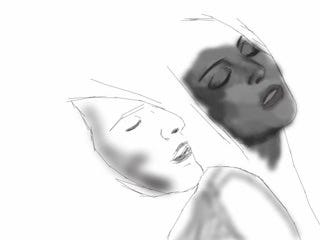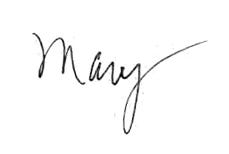Note: You can start reading here or anywhere, then go back. See Table of Contents. Come in the middle? Robert is the narrator who discovers after his wife Lena has died that she had a lover, Isaac. Evan is Isaac’s wife. Robert is on a search for how he lost Lena: He’s creating the story through memory, invention and a search for the truth and his role in what happened—and by stalking Isaac.
Lena Turns to Evan
Ever since Isaac had told Lena about the bones he was examining, she’d become obsessed with the baby she’d lost, and whether, finally, to tell him.
Evan had said, “Spinsters, some awful late miscarriage, the old out-of-wedlock story.” Evan made it up and Lena filled herself in.
She went to the kitchen, brewed coffee. It was barely half-past six. When she cut the mango, she sliced it off the stone, slashed the flesh into squares like a checkerboard with her knife and then turned the skin inside out, the tiny squares ready to be lifted off with her teeth. She looked at the mango and thought of Isaac and of Evan, how Evan had taught him to do this, and Isaac had then taught her, how entwined their lives were—even the eating of the mango.
She yearned for the disturbing comfort that Evan gave, innocently, unprompted as if she’d understood somehow. Askance—through an odd channel. She left the kitchen to find a mirror, to look at herself in the hope that she’d come to her senses. Askance. She was troubled by the double meaning in the word, what she thought her father meant and the way someone untrustworthy looks, the way she looked to herself in the mirror above the phone in our hallway near our front door.
She picked up the phone, called Evan at home. “Evan, the recipe for the dressing was perfect. I wanted to thank you even though I forgot the garlic. How was your dinner?”
“Lena, are you all right? It’s early, but that’s no problem.”
Goodness, it was way too early to be making this call. She should hang up, but Evan continued, “I’m glad to talk with you, of course. Are you okay?”
What was she doing? Isaac out of her bed, then on the lawn—Oh, the sight of him. This was misguided, cruel. She must hang up. “Evan, I’m sorry.”
“No, let’s talk now. I made the duck but ended up eating it alone.” Lena didn’t know that Evan had not only eaten alone, she’d slept alone, that he’d not come from her bed. Evan continued, “It must be that case. I guess I’ve discounted it. Or maybe I haven’t been listening. You know what he says about me. So it wasn’t much of a dinner party. I’m sorry you couldn’t stay.”
“Yes, then we could have got him talking about it, the case, I mean.”
“Well, we would have had to get him to stay to do that.”
“So, he went back to work?”
“Yes, without eating. It must be the case, don’t you think?”
Lena didn’t see Evan’s need. She saw the path that Evan opened for her. “I’ve been thinking about what you said. You called it ‘the old-out-of-wedlock story.’ I’ve been thinking about them.”
“Who?”
Who, indeed? Well, she had been thinking about the one who’d had the baby. She had wondered if she’d told the others or if she’d simply been found out, had waited to be exposed. She said, “The three old maids.”
Lena had been thinking about when she, unmarried at thirty-two, had stood in the family plot under the large maple, after she’d aborted the baby, after she’d driven the narrow lane that climbed in a smooth curve toward the crest of the hill where her father and mother were both now buried. How she’d not told her mother, who would have understood about the abortion, how now she wished she had. But instead she’d gone to her grandparents’ graves, watched the maple’s gold-red leaves swirl in the chill. Leaves lifted and floated.
Graves, covered with a delicate dusting of color. How she’d picked up a red-gold leaf, laid it out in the palm of her hand and considered finding a small marker to place between the graves of her grandparents though there was no baby wrapped in a linen shroud, no coffin. She’d stood there and said out loud to the headstones, “Impossible.” She’d conceived in summer, aborted in fall. She said into the phone, “June” and knew that she’d spoken nonsense.
“What about June? Lena, are you okay?”
Hardly. She was in a muddle. She should simply hang up, but said instead, actually getting hold, “Oh, I guess that’s her name. And I guess that makes me crazy.”
“Who?” Evan repeated.
“Well, me, of course.”
Evan laughed and, thank goodness, so did Lena.
Evan said, “I meant, Whose name?”
“Well, one of their names.” This was not helping. “This is too silly. I’m gonna hang up, Evan. I’ve got to.”
“Look, you woke me up. Let’s just say, you’ve got my interest. So, June is one of their names?”
“I guess. I mean— Oh, this is ridiculous. Evan, I am a bit loony.”
“Yeah, aren’t we all.”
“I don’t know why I’m talking this way. You’ve got to get to work. So do I.” Finally, she’d said something sensible. She’d go to work, back to the translations, to the pieces of ancient parchment, to what little work was left to be done for the arrival of the Scrolls and artifacts.
“So which one would June be?”
“Evan, you’re not taking me seriously, are you?”
“And that would be so terrible? Why don’t you just tell me.”
Tell her what? But she continued, moving forward while feeling stuck in the mess she’d created. She considered names. “June would be the one who’s pregnant. Evan, that’s enough. We’ll talk another time.”
But Evan was having none of that. “Yeah, that’s a good month, a good name. That’s when my garden fills up with flowers. And the others? I suppose you’ve got names for them, too?”
“Not really, unless I’m certifiable—”
Evan interrupted, “Yeah, well, maybe I am. Now, give.”
“Evan, we both have better things to do.”
“My alarm doesn’t go off till seven. Remember, you called me.”
“Yeah, I did, didn’t I? That should make you wonder.” What was Evan wondering?
“You’d have to figure the others wouldn’t approve,” Evan said. ‘That’s how it all went so bad, don’t you think?”
“I don’t think anything.” Lena wanted to hang up.
“Augusta, I think, for the oldest,” said Evan. “Oooh, I hate August. What an awful month! Everything gets so overgrown. I can’t keep up with it. So, Augusta would be the orderly one. You know, they say names are destiny. She’d be made obsessively tidy by her awful name. She’d have obsessive-compulsive disorder, be washing everything, her hands especially. Go ahead, name the middle sister.”
“Gertrude,” Lena said. Hamlet’s mother, the betrayer.
“Oh, that’s good,” Evan said, “for the word ‘true’ right there in her name. She’d be the one who’d need to know what happened. She’d want the skinny, don’t you think?”
With the word ‘true’ from Evan’s mouth, Lena now thought Evan clever. She must be clever to do her work, to talk around the story to get the story. But clever is not a word Lena had before now associated with gentle Evan. She realized, Evan will guess the truth. Have I wanted her to guess? This nagging suspicion about herself made Lena dead serious. “Evan, I must go. Forgive me.”
She placed the phone in its cradle and saw herself beneath the row of rosy marble headstones, carved in the corners with forget-me-knots.△
Chapter 14: Heroes, next
Table of Contents
Love,









“Lena didn’t see Evan’s need. She saw the path that Evan opened for her.” And then later, “Have I wanted her to guess?” Feels to me the answer is YES. I love this dialog, two individuals sharing a conversation but both with very different agendas. Makes me think how often this happens though we still call it communicating!
Oh, this chapter gives me shivers... Excellent dialogue. Keeping the reader suspended in the "will she - won't she" question, which is of course Lena's dilemma.